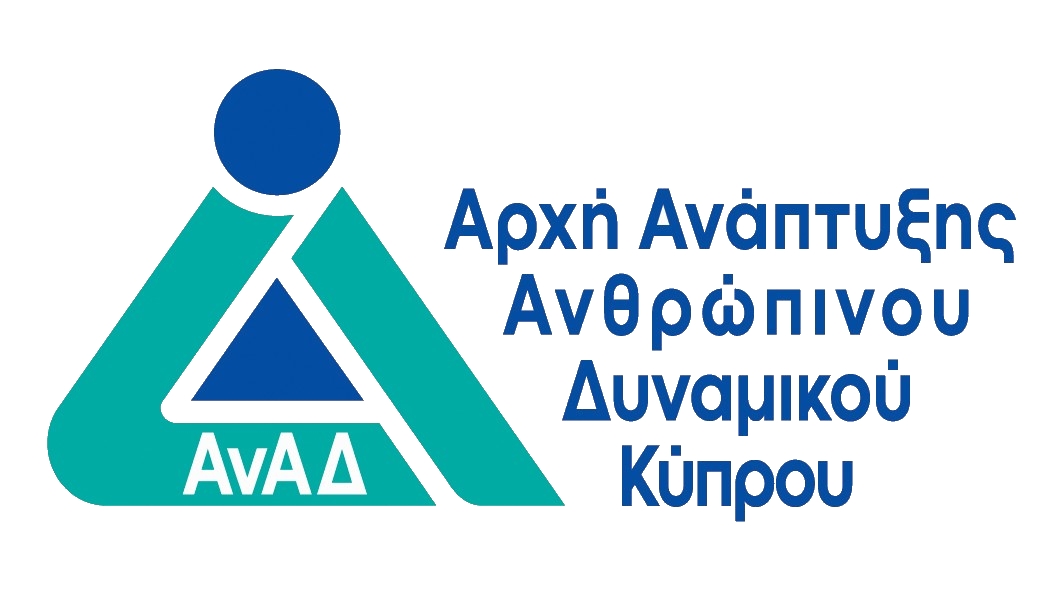
Advocacy in Civil and Criminal Litigation: Hybrid Practical Training for Lawyers in Cyprus
- Soft Skills / Επικοινωνία - Νομοθεσία, Νομική & Δικηγόροι

ΠΕΡΙΓΡΑΦΗ
This practical course in litigation advocacy offers legal professionals hands-on training in courtroom skills based on Cyprus law. Through seven structured modules, participants learn court procedures, ethical duties, and effective advocacy techniques including examination-in-chief, cross-examination, and handling objections. The course combines trainer demonstrations, role-playing, peer feedback, and live simulations of civil and criminal trials. It includes trial planning, rehearsals, and filmed moot court exercises. Participants are assessed using the Hampel method and receive targeted feedback to refine their technique. Designed to enhance confidence, courtroom presence, and strategic thinking, the programme prepares advocates for real-life litigation in Cyprus courts.
ΣΚΟΠΟΣ ΣΕΜΙΝΑΡΙΟΥ
Here are 7 key things participants will learn from the course:
Mastery of Cyprus Court Procedures: Understanding the structure, flow, and rules of civil and criminal trials under relevant Cypriot laws (Cap. 6, Cap. 9, Cap. 155).
Effective Oral Advocacy Skills: Building courtroom presence through structured presentations, applying the Hampel method, and learning to deliver compelling opening and closing statements.
Examination & Cross-Examination Techniques: Learning how to conduct persuasive, rule-compliant examination-in-chief and strategic, controlled cross-examinations.
Handling Objections with Confidence: Practising real-time responses to evidentiary and procedural objections using appropriate legal justifications.
Witness Management: Developing skills to handle cooperative, hostile, or unpredictable witnesses and adjust strategy under pressure.
Trial Preparation and Team Collaboration: Planning trial strategy, assigning roles, and coordinating with team members in a simulated trial setting.
Performance Evaluation and Self-Reflection: Receiving expert feedback based on courtroom standards and reviewing filmed performances to identify strengths and areas for improvement.
ΣΕ ΠΟΙΟΥΣ ΑΠΕΥΘΥΝΕΤΑΙ
suitable for
- Practising lawyers in Cyprus (civil and/or criminal) seeking to improve their courtroom advocacy skills
- Newly qualified lawyers who wish to build confidence and competence before appearing in court
- Junior associates and trainees working in law firms who are preparing for active trial work
- In-house legal counsel who handles contentious matters or represents their organisation in legal proceedings
- Advocates returning to litigation after a period of inactivity who need to refresh procedural knowledge and advocacy techniques.
ΠΕΡΙΣΣΟΤΕΡΕΣ ΠΛΗΡΟΦΟΡΙΕΣ
Course content
Module 1: Foundations of Advocacy and the Role of the Advocate
- Court structures and procedural overview (civil and criminal), with reference to the Courts of Justice Law (Cap. 6), the Civil Procedure Rules, and the Criminal Procedure Law (Cap. 155)
- Ethical and professional duties in litigation under the Advocates' Law (Cap. 2).
- Introduction to advocacy as strategy and performance within the context of Cyprus litigation practices
- Live instructor-led examples drawn from Cypriot case law and courtroom settings, including references to landmark decisions. Practical discussion of witness handling and objections under the Cyprus Evidence Law (Cap. 9), supported by group interaction
- Introduction to the Hampel method rubric used by inns of court in the UK.
- Each participant delivers a 2-minute oral presentation simulating a court application grounded in Cyprus procedural and evidentiary rules.
- Trainer feedback using the Hampel method rubric.
- Repetition of oral presentation following feedback.
Module 2: Examination-in-Chief – Building a Witness Narrative
- Introduction to the application of Cap. 9 on the admissibility of oral testimony, the rule against leading questions during examination- in-chief, and provisions governing witness recollection and memory refreshing under Cyprus judicial practice
- Trainer demonstration of a model examination-in-chief using a fact pattern aligned with a Cyprus civil case, highlighting how effective questioning supports admissibility and coherence in compliance with Cap. 9
- Participant breakout: each pair is given a witness statement from a provided Cyprus-based case file and prepares 5 non-leading, open-
ended questions designed to build a persuasive factual narrative that complies with evidentiary requirements under Cyprus law - Each participant performs a short role-play of their examination-in-chief before a trainer and peers, simulating real courtroom dynamics, judicial expectations and etiquette as seen in Cyprus courts
- Structured feedback is provided by peers and trainer
Module 3: Cross- Examination – Control, Contradiction and Credibility
- Legal basis for cross-examination in Cyprus under Cap. 9 - the admissibility of prior inconsistent statements, and the use of leading questions in cross-
examination. - How Cyprus courts assess credibility and deal with evasive or hostile witnesses, referencing relevant Cyprus
case law. - Techniques for controlling the witness through strategic sequencing, use of silence, tone modulation, and repetition to elicit key facts or contradictions without breaching professional conduct norms.
- Trainer-led demonstration of a model cross-examination segment from a Cyprus criminal trial scenario.
- Participant breakout: Groups rotate through roles (advocate, witness, evaluator). Each advocate is assigned a witness from the course’s civil or criminal case files, and must prepare and execute a 5–7 minute cross-examination.
Module 4: Trial Planning and Role Allocation
- Provision of trial bundles prepared for the course: one for a civil dispute and one for a criminal case. Each bundle includes statements of case, evidentiary materials, and Cyprus-compliant pleadings.
- The structure and procedural flow of trials in Cyprus courts under Cap. 6, the Civil Procedure Rules, and Cap. 155.
- Explanation of the moot court format and timeline: each participant will be involved in both a civil and a criminal trial, and will rotate through active advocacy and support roles.
- Participants are divided into balanced trial teams with each team responsible for either the first or second half of one of the two trials.
- How to prepare for trial strategies based on assigned roles a)identifying legal issues, b)planning sequence of questions c)anticipating objections and judicial interventions using question mapping.
Module 5: TrialPreparation & Rehearsals
- Activity 1: Curveball Witness Drill - Participants conduct a short examination-in-chief or cross-examination of a witness who unexpectedly deviates from their witness statement, introduces ambiguity, or becomes uncooperative. Advocates must adjust strategy mid-performance. - trainer feedback provided.
- Activity 2: Trial Objections Micro-Courtroom Simulation In fast-paced courtroom mini-
scenarios, participants present parts of a case (short opening, one witness question, or a closing line), while assigned peers raise procedural or evidentiary objections (e.g. relevance, hearsay, improper impeachment). The presenting advocate must respond immediately, referencing legal authority or courtroom etiquette. Trainer feedback provided. - Activity 3: “What Would You Do If...?” Real Courtroom Problems - Participants are presented with a series of civil and criminal trial scenarios that mirror unpredictable real courtroom problems. Trainer led discussion and feedback on how to tackle these problems
Module 6: Full Dual Moot Court Trials
- Full briefing by lead trainers
- Participants then split into two courtroom setups: One group conducts a simulated civil trial (e.g. breach of contract case involving expert testimony). The other group conducts a criminal trial (e.g. assault case with multiple eyewitnesses). Each trial session includes: 2 opening speeches 2 examination-in-chief
segments 2 cross-examinations 2 closing submissions - Trainer acting as a judge and observes performance for accuracy, structure, and conduct and Interrupts with objections or questions, mirroring real courtroom intervention. Takes notes and completes structured evaluation sheets based on Cyprus advocacy standards
- All trial segments are professionally filmed with time stamps for individual analysis.
Module 7: Moot court review + Live Video Feedback
- All participants together enter the Review Room to collectively view video clips of each performance.
- The trainer facilitates structured critique using the Hampel method, guiding the group through the analysis of each performance.
- The trainer facilitates structured critique using the Hampel method, guiding the group through analysis of each advocate’s questioning strategy, control of the witness, use of legal language, and courtroom presence.
- Hampel method is used: trainer identifies key area for improvement.
- Overall reflections
- Discussion of common strengths and common challenges
- Questions and answers
Πληροφορίες Εκπαιδευτή
Αναλυτικό Κόστος Σεμιναρίου
Για Δικαιούχους ΑνΑΔ
- € 630.00
- € 480.00
- € 0.00
- € 150.00
- € 150.00
Για μη-Δικαιούχους ΑνΑΔ
- € 630.00
- € 0.00
- € 119.70
- € 630.00
- € 749.70
ΠΡΟΓΡΑΜΜΑ ΣΕΜΙΝΑΡΙΟΥ
Πέμπτη - 11 Δεκ 2025
Ώρα
15:00 - 18:15
ΕΚΠΑΙΔΕΥΤΗΣ:
Αντωνία ΑργυρούΤοποθεσία:
OnLine Virtual Classroom
Παρασκευή - 12 Δεκ 2025
Ώρα
15:00 - 18:15
ΕΚΠΑΙΔΕΥΤΗΣ:
Αντωνία ΑργυρούΤοποθεσία:
OnLine Virtual Classroom
Πέμπτη - 18 Δεκ 2025
Ώρα
15:00 - 18:15
ΕΚΠΑΙΔΕΥΤΗΣ:
Αντωνία ΑργυρούΤοποθεσία:
OnLine Virtual Classroom
Παρασκευή - 19 Δεκ 2025
Ώρα
15:00 - 18:15
ΕΚΠΑΙΔΕΥΤΗΣ:
Αντωνία ΑργυρούΤοποθεσία:
OnLine Virtual Classroom
Πέμπτη - 08 Ιαν 2026
Ώρα
15:00 - 19:15
ΕΚΠΑΙΔΕΥΤΗΣ:
Αντωνία ΑργυρούΤοποθεσία:
OnLine Virtual Classroom
Πέμπτη - 15 Ιαν 2026
Ώρα
15:00 - 19:15
ΕΚΠΑΙΔΕΥΤΗΣ:
Αντωνία ΑργυρούΤοποθεσία:
OnLine Virtual Classroom
Παρασκευή - 16 Ιαν 2026
Ώρα
15:00 - 19:15
ΕΚΠΑΙΔΕΥΤΗΣ:
Αντωνία ΑργυρούΤοποθεσία:
OnLine Virtual Classroom
 Ελληνικά
Ελληνικά  English
English



 Αγγλικά
Αγγλικά
 24 ώρες
(
7 μέρες
)
24 ώρες
(
7 μέρες
)






























